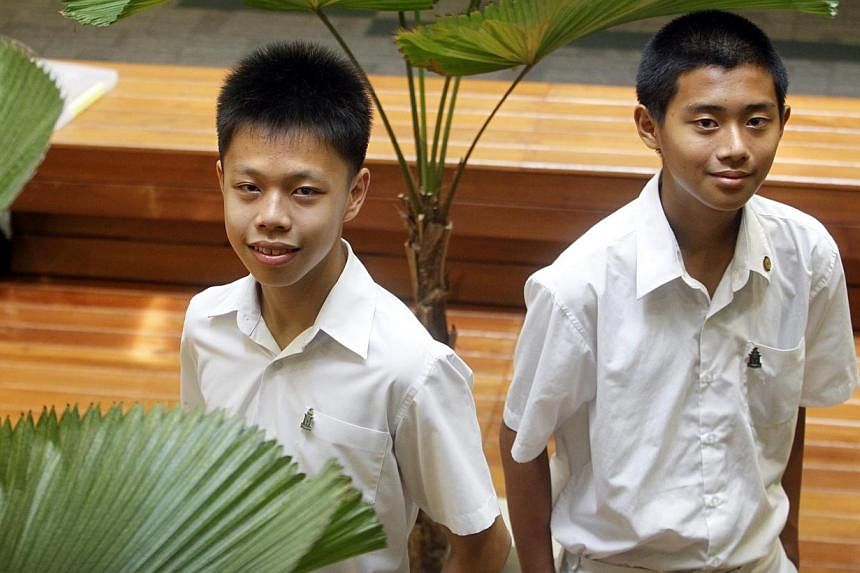For the past four years, Raffles Institution (RI) has been giving cash awards to Primary 6 boys from low-income homes to encourage them to aim for a place in the school, one of the most prestigious and the oldest here.
But it is now relooking the way it reaches out to these boys - for, despite its good intentions, only one or two of them enrol in the school each year even though several do well enough in the Primary School Leaving Examination (PSLE) to qualify for a place.
RI has awarded Junior Raffles Institution Scholarships to between 20 and 30 pupils a year for the past three years. The award comes with $1,000 in cash to pay for study or enrichment expenses.
Besides coming from low-income families, the pupils must show potential to do well enough in the PSLE to meet the entry score for top schools like RI, which is well above 250.
RI did not reveal the socio-economic make-up of its students, but there has been much debate of late on the worsening diversity in top secondary schools here. Last year, Prime Minister Lee Hsien Loong expressed concern about such schools becoming "closed circles" for a select crowd.
RI is now looking at giving out the awards one year earlier, in Primary 5, and getting older students to mentor the pupils. Besides giving academic coaching, the mentors will share life skills like time management and goal setting.
Mr S. Magendiran, RI's senior deputy principal (student development and alumni relations), said it will first study why so few of the recipients end up in the school.
"There are students who meet the cut-off score for RI, but then cite reasons such as distance from school for not enrolling," he said.
Though primary schools give out information on financial aid schemes, some parents are reluctant to send their children to RI, he said.
"Anecdotally, we hear there are some who worry about other costs. In some cases, the parents worry that the children will not fit in with their peers," he said, adding that RI will look at how to overcome such hurdles.
Social workers and voluntary organisations welcome schemes to encourage children from poor homes to aim for top schools. But besides providing academic support, socio-emotional aspects must be considered too, they said.
Self-help group Mendaki's director of education and research Aida Royani welcomes RI's plan to reach out to Primary 5 pupils and provide mentors. "You need to start much earlier to build up the confidence of these children and to encourage them," she said.
Care Corner service development director Woo Mei Mei said RI needs to work with parents too, as "parents are still the decision makers".
She cited fears about not fitting in: "Children are constantly comparing what they have, including their stationery, what cars their parents drive and where they go for holidays. So, the child from a poor family is bound to feel that he does not fit in."
Mr Choo Chiau Beng, chairman of RI's board of governors, said it is important for RI to be a school for all. He agreed with Nominated MP Eugene Tan who, in Parliament last week, bemoaned the worsening diversity in top schools like his alma mater, RI.
Mr Choo, the former chief of Keppel Corp, said he had a humble background but never felt out of place, as RI drew students from varied backgrounds in the 1960s.
While acknowledging it is hard for those from low-income homes to catch up with peers from better-off families, he said: "It was always the school that a labourer or hawker's son could aspire to. It is important for RI to keep that."

